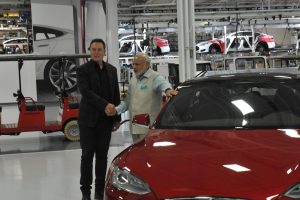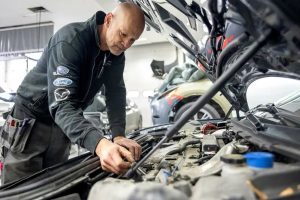Tesla Destination chargers and the Tesla Supercharger Network have ranked the highest in JD Power’s inaugural US Electric Vehicle Experience (EVX) Public Charging Study.
Tesla’s Destination chargers ranked the highest among Level 2 point operators, with a score of 689 points out of 1,000. Tesla’s Supercharger Network ranked the highest among DC fast chargers, scoring 733 points.
JD Power highlighted two key points in the study that revealed areas where EV charging still needed to improve.
One key point referred to owners’ mixed feelings over the availability of public charging stations. There are still areas where public charging stations are scarce, resulting in a drop in satisfaction from owners.
Another key point the study revealed was the most-cited problems from BEV and PHEV owners. Owners often found issues with the lack of available chargers at stations and were not pleased with long wait times.
“Public charging infrastructure is a key component in the overall adoption of electric vehicles by the broad population,” said Brent Gruber, senior director of global automotive at JD Power.
“Unfortunately, the availability of public charging is the least satisfying aspect of owning an EV. Owners are reasonably happy in situations where public charging is free, doesn’t require a wait, and the location offers other things to do—but that represents a best-case scenario. The industry needs to make a significant investment in public charging to assure a level of convenience and satisfaction that will lure potentially skeptical consumers to EVs,” Gruber added.
Before the study was released, Tesla announced its plans to open its Supercharger network to non-Tesla EVs. The move would make at least 25,000 chargers available to non-Tesla EV owners worldwide.
Tesla seems to understand the significance and impact of charging stations on the EV market. After all, a strong infrastructure for electric and plug-in hybrid vehicles could support growth in the market. It could also help non-Tesla EVs improve their utility.
“For the first time, the market value of an EV on the road can be impacted by something that is not attached to the car itself,” Recurrent CEO Scott Case told Teslarati.
Case was referring to the value charging stations added to EVs or PHEVs. He explained that part of the reason Teslas retain or increase their value was because the company keeps growing its charging stations. More charging stations boost owners’ experience by increasing the usability of EV and PHEVS, which in turn raises their value.
“And now, if Tesla Supercharger networks open up to you—the biggest network–your car has a higher utility to you and to a future owner, so actually the car may actually appreciate in value for anybody that is holding one now,” Case said.
Read JD Power’s study here!





